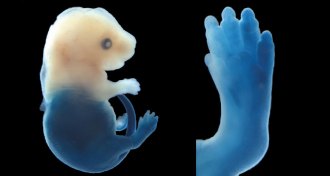Life
Sign up for our newsletter
We summarize the week's scientific breakthroughs every Thursday.
-
 Neuroscience
NeuroscienceHis stress is not like her stress
When the pressure doesn’t let up, men and women react differently. The root of the difference may be messaging within the brain.
By Susan Gaidos -
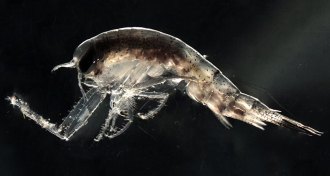 Animals
AnimalsThe moon drives the migration of Arctic zooplankton
In the darkness of the Arctic winter, the moon replaces the sun as the driver of zooplankton migration, a new study finds.
-
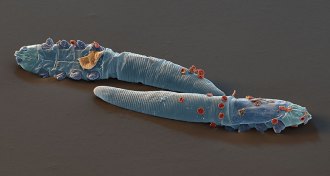 Animals
AnimalsThe mites living on your face probably run in your family
Demodex folliculorum mites, which live on human skin, have probably evolved with their hosts over time.
-
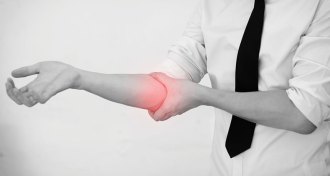
-
 Cosmology
Cosmology‘Origins’ offers science-based account of creation
In Origins, a science writer compiles an ambitious yet concise history of the universe and life on Earth.
By Sid Perkins -
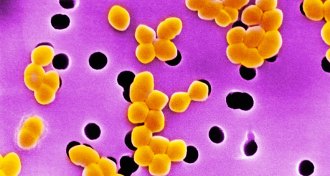 Life
LifeBody’s bacteria don’t outnumber human cells so much after all
New calculations show human cells about equal bacteria in the body.
-
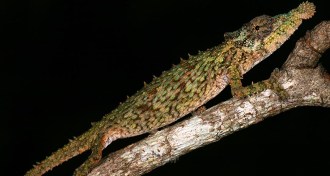 Animals
AnimalsSmall lizard packs powerful tongue
A tiny chameleon from South Africa sets an acceleration and power record for amniotes.
-
 Animals
AnimalsLittlest chameleons pack powerful tongues
A tiny chameleon from South Africa sets an acceleration and power record for amniotes.
-
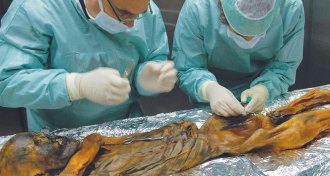 Genetics
GeneticsThe Iceman tells a new tale: Infection with ulcer-causing bacteria
Ötzi the Iceman was infected with a virulent strain of H. pylori. A new study is the first to piece together an ancient genome of these bacteria.
By Meghan Rosen -
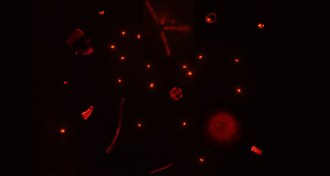 Oceans
OceansPhytoplankton flunk photosynthesis efficiency test
Nutrient-poor ocean waters make phytoplankton photosynthesis inefficient
-
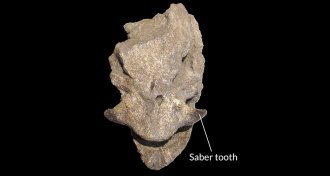 Paleontology
PaleontologySaber-toothed salmon teeth more like tusks than fangs
Saber-toothed salmon teeth may not have been positioned like fangs at all.
By Susan Milius -
